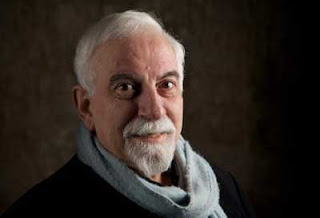There is also no magic in how the examen is to be done. Different individuals and groups offer different approaches or steps.
The following is one five step method:
1. Spend a moment slowing down and being aware that you are in God's presence.
St. Paul, quoting a Greek poet, said that in God we live and move and have our being. God is always present to us, but we are not always present to God. We are often distracted and so we begin our brief period of prayer pausing to reflect on God's presence.
2. Spend a brief period of time in thanksgiving. What are you thankful for at this very moment? This prayer of gratitude puts you in a positive frame of mind that allows you to be more open to God's presence in your day. It
"primes the pump" for your review.
3. Ask for the help of the
Holy Spirit to see yourself as God sees you. Most people tend to see the glass as half empty rather than half full. If I tell someone nine very positive things about him or herself and one negative or critical thing, that person will tend to go away thinking only about the one negative thing. You need the Holy Spirit to have perspective, to see yourself with honesty and also with love, unlike the one whom Scripture calls
"the Accuser" who loves to disturb you by leading you to focus only on what is negative.
4. Review your day. Imagine you are watching a video of your day, seated on a couch with Jesus. Some parts you may fast-forward through, but other parts you will pause at in order to savor or reflect upon: what was God telling you through that event or person? How did you feel? What do those feelings tell you? Was God affirming you or challenging you through that moment of your day? You may want to fast-forward through some parts but Jesus may want you to pause so that with the help of the Holy Spirit at that moment He can teach and guide you. This part is the core of the examen.
5. Have a heart-to-Heart talk with Jesus. What comes to your mind as you finish your review? How do you feel and what do you want to say to Jesus? Are you sorry for anything? Are you grateful? Are there any signs in your day that point in a specific direction for the major decision you are making? You might write those down and keep an ongoing record of them to share with a spiritual or vocation director. Finish your prayer with a resolution or act of faith, hope, or love, committing yourself to following the Lord as best you can in the next day that God is giving you.


























